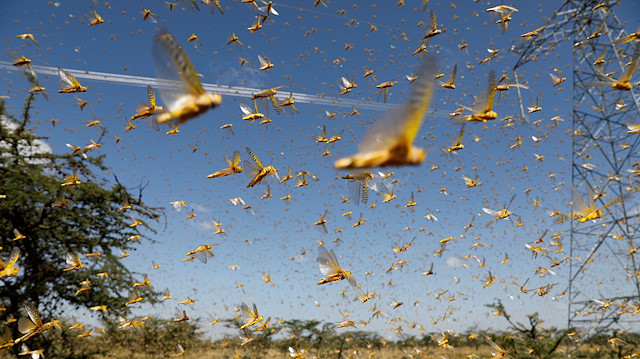
NATIONAL PLAN
Khan of the Department of Plant Protection, who is the state's focal point for locust control, said the government had been preparing for the next wave of locusts since last year.
In January, the ministry shared a national action plan for surveillance and control of the desert locusts with the prime minister, who declared the locust attacks a national emergency in February.
That helped drive things forward with funding, surveillance and control operations, coordinated with provincial agriculture departments, the National Disaster Management Authority, the FAO and the army, said Khan.
In addition, officials from the FAO, Afghanistan, India, Iran and Pakistan meet each week to discuss and plan for the regional situation, he added.
Khan said Pakistan now had “a fairly foolproof plan”, including aircraft and ground vehicles to spray the insects, pesticides and more than 1,000 trained teams of four people that can be deployed at short notice across the country.
Timely action since February in the remote desert of Balochistan, with support from the army, had so far helped tame the threat, he added.
Surveys detected the locusts’ breeding ground and the hoppers – or young locusts – have been sprayed regularly to kill them before they become adults, he said.
If control operations go according to plan, he remains hopeful Pakistan will not suffer the high levels of infestation now being experienced in the Horn of Africa.
"One of the reasons I say this with such confidence is that I know what their level of preparation is and what is ours right now," he added.
Hello, the comments you share on our site are a valuable resource for other users. Please respect other users and different opinions. Do not use rude, offensive, derogatory, or discriminatory language.
The floor is all yours.








